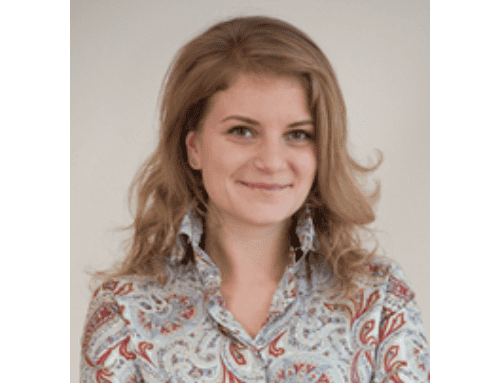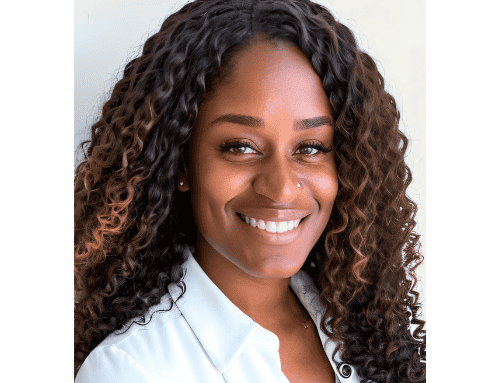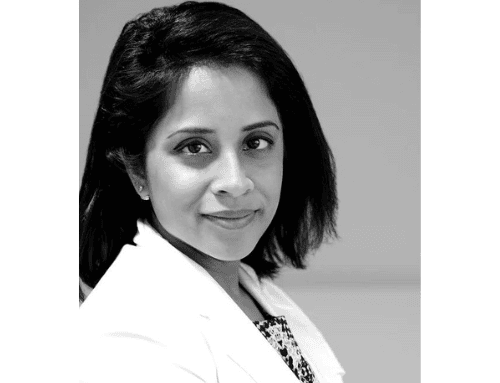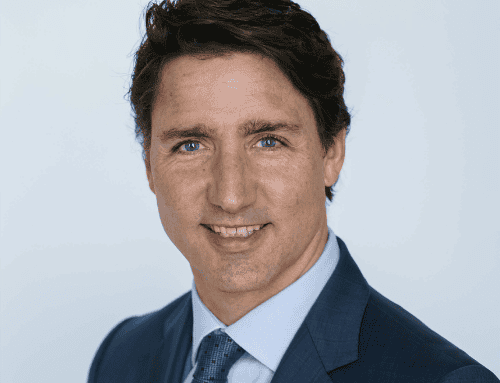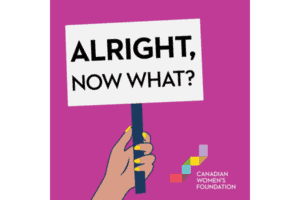 We’re mindful of crises in the Ukraine, in Afghanistan, in Yemen, and other regions of the world. The goal of gender justice in Canada is intertwined with the goals of peace and safety all over the globe. But the distinct needs of women, girls, and gender-diverse people fleeing conflict as refugees and the interplay of discrimination like racism, homophobia, transphobia, and ableism are underrecognized in our responses and in the settlement process. What do we mean when we say that refugee experiences are gendered?
We’re mindful of crises in the Ukraine, in Afghanistan, in Yemen, and other regions of the world. The goal of gender justice in Canada is intertwined with the goals of peace and safety all over the globe. But the distinct needs of women, girls, and gender-diverse people fleeing conflict as refugees and the interplay of discrimination like racism, homophobia, transphobia, and ableism are underrecognized in our responses and in the settlement process. What do we mean when we say that refugee experiences are gendered?
Sizwe Inkingi, Coordinator of the Positive Spaces Initiative at the Ontario Council of Agencies Serving Immigrants (OCASI), joins us to talk about it. OCASI acts as a collective voice for immigrant-serving agencies and coordinates response to shared needs and concerns. Its membership is comprised of more than 200 community-based organizations.
Transcript
00:00:00 Andrea
Hi, I’m Andrea at the Canadian Women’s Foundation. Conflicts are unfolding all over the globe. This, of course, leads to people fleeing conflict for safety. What’s the refugee experience for women, girls and gender diverse people? And what’s the right response?
Welcome to Alright, Now What?, a podcast of the Canadian Women’s Foundation. We put an intersectional feminist lens on stories that make you wonder “Why is this still happening?” We explore systemic roots and strategies for change that will move us closer to the goal of gender justice.
The work of the Canadian Women’s Foundation and our partners takes place on traditional First Nations, Métis, and Inuit territories. We are grateful for the opportunity to meet and work on this land. However, we recognize that land acknowledgements are not enough. We need to pursue truth, reconciliation, decolonization, and allyship in an ongoing effort to make right with all our relations.
Today, we are mindful of crises in the Ukraine, in Afghanistan, in Yemen, and other regions of the world. The goal of gender justice in Canada is intertwined with the goals of peace and safety all over the globe. But the distinct needs of women, girls, and gender diverse people fleeing conflict as refugees and the interplay of discrimination like racism, homophobia, transphobia, and ableism are often under- recognized in our responses. Sizwe Inkingi, Coordinator of the Positive Spaces Initiative at the Ontario Council of Agencies Serving Immigrants, known as OCASI, joins me to talk about it today.
00:01:38 Sizwe
My work with OCASI is creating curriculum professional development courses for folks who work in the settlement sector. We particularly speak about creating positive spaces for LGBTQIA newcomers settling in Ontario, so the goal is to integrate LGBTQIA needs within their systems. So it ranges from their policies, practices, and also some of the programming too. And I’m also supporting the development of National LGBTQIA guidelines, that is to support all service providers across the country.
00:02:19 Andrea
What does it mean when we say that the refugee experience is gendered?
00:02:23 Sizwe
It all comes down to our structures.
Our structures really benefit those who have a closer proximity to power I would say. We don’t take into account the story of the LGBTQIA or the refugee women experience before coming into Canada, not understanding the cultural context that they might have gone or experienced. So when coming into Canada, a lot of people have, they have a hard time translating their identity in a new space. A lot of people don’t take into account where they’re coming from. So that means that you’re always given a label. You have to work with this label. Either you’re the hard-working immigrant woman or you know you’re the one that’s benefiting from the system, so there’s two extremes, right? Or you’re seen as the one that’s helpless or we’re freeing you from this misogynistic country that you’re coming into. And then you know when you come here, you have all these labels that you have ascribe too, and we tend to forget that.
So when they say that our experience is very much gendered. We try and say OK, you know, we here in Canada we have, you know, feminist principles and we have all this to support you, but it’s really not intersectional. It’s really not taking into account the diversity and experiences of different people and that is seen through the representation of the people creating these policies as well. We’re not even giving space for these folks to speak, so there’s a lack of that intersectional experience and also understanding what are some of the barriers they might have faced when they’re coming into the country. So a lot of women that come here maybe might have had to leave their families behind. There’s no cushion or gray line area that talks about who did you come with or even what are some additional supports that you might need and safety, for example. There’s always this assumption that you have, you’re traveling with somebody, so then all of these stereotypes come in play.
00:04:26 Andrea
We are not always thinking about the diversity of what refugees might be bringing with them, their experiences, their needs. So what policy responses should Canada have in moments of refugee crisis to best support gender justice and human rights? And what do you think gets in the way of that?
00:04:46 Sizwe
Regardless of any refugee crisis that is happening in the world, I think we should have an equitable response to each of the crisises.
There are different streams by which people can actually come into the country. Traditionally we have, you know, the government assistance refugee programs, or you know, the privately sponsored refugee programs. But we never really talk about the joint assistant program. This is also one program or streamline where vulnerable people, particularly I’m speaking about trans-women, are able to come through this stream without having to go through the bureaucratic process of being identified or having that waiting space because they’re very vulnerable when it comes to when they’re in refugee camps. Canada has a responsibility really to ensure that first this has to be equitable. At least provide safety measures ’cause I always say safety is a big one. Even if they’re internally displaced or if you know folks are making their way here, there has to be a safety measure for refugee women and trans women because they are more susceptible to violence in spaces where they are moving and moving away from danger. And that is not really taken into account.
We already have the structures in place, but it’s just really ensuring that what are we doing? Particularly for refugee women and gender diverse people. And also take out the barriers that might prevent them from coming.
So gender diverse folks, they tend to be an issue in terms of our gender markers for example. How we self identify in the space where we are leaving violence. We have to not necessarily self proclaim who we are or sometimes it is visibly there. So how are we ensuring that our safety is taken into account?
There’s also that violence that comes in when through the questions that were asked by perhaps the Canadian border, CBSA. So it’s wondering, OK, what are the right questions to ask in by which I can facilitate my settlement process? And what are some of the things I might need before my departure here?
00:06:58 Andrea
And what kinds of services and supports make a real difference for refugee women and girls and gender diverse people once they come to Canada, what’s the settlement process like?
00:07:07 Sizwe
Wayfinding has also been a hard process.
A lot of refugee women, gender diverse folks, trans folks have to basically make sense of what is going on around them. Before an individual comes knocking at a settlement service providers’ door, they’re coming in with a lot of baggage. They have gone through a lot of barriers. You don’t know how hard maybe it was to get transport to get to your space. Maybe they might have been heckled for example, maybe they’re just going through it, right, by the time they actually reach the service provider of the center for example. So it’s how are they accommodated as well. So wayfinding is also one. Just finding who is the appropriate or positive service provider I can go speak to.
A lot of information is passed through word of mouth through WhatsApp. You know community members speaking with each other. But the thing is that I could be in Thunder Bay and I’m asking a friend who is all the way in Toronto, right, so wayfinding is so hard, but communities tend to work so well with each other that they can pick the dots, right? ’cause if a community members are speaking together, service providers are speaking together, right? So there’s that community of practice that’s like not a structured one, but it’s there that tends to work together, which is amazing to see. Two, the supports that are put in place for our refugee women, gender diverse folks and trans women. They really have to respond to their specific needs when it comes to providing childcare, for example, what does that look like? When thinking about are you asking me for my preferred name when I’m entering a space? In the database, how am I received by other service providers and also when it comes to health, when I’m going to the health practitioner, are they taking into account like cultural norms for example, and my comfort level? Are we speaking with each other? Are service providers speaking? We should, so ideally, the wayfinding system should actually take into account these things. They should be asking beyond what people names are and everything else, like what are some of the supports that they need, and how can people actually manage to respond to that.
And one thing I need to also bring up, I think it’s also something that’s it’s always near and dear to my heart and it always has impacted the community is I don’t know if you remember the story of our beloved Sarah Hegazi. So Sarah Hegazi was a Egyptian woman and advocate for the LGBTQIA community, who unfortunately is no longer with us. But through her story you got to just hear a lot of the pain points of what refugee women, folks from the queer community go through. When you come to Canada, sometimes it’s hard to find a sense of belonging, especially if you come in within the COVID context. When you go and look for supports, some people tend to not actually, they’re not going to quote culturally competent, they’re not able to respond to someone in need. With her story, you get to really see how stigma and stress from back home still continues with you because you can still be bullied virtually.You can still be harassed virtually. Also, when you’re looking for help in general, people don’t tend to actively listen to what you’re actually looking for. You know you’re just a number in the system for example, right?
So we need to identify champions within the sector and champions that are related to the community that can actually support folks that are going through the different Isms right, taking into account the cultural context that we’re in, taking into account, you know, the social economic issues that might be coming, ’cause everything plays a role. Everything is intersecting with each other. So how do we mitigate these different issues that might come up right and that would help us, will help us create a system that is barrier free and is interdependent with each other so that we’re not only bureaucratic, yeah, and also it’s just also holistic and very human. I think that’s something that we’re missing. We talk about empathy, compassion, but how is it coming out right?
And we’re doing great work. I mean, we’re talking about it, but it’s very new for everybody for me, for you, for everybody, I guess.
00:11:31 Andrea
Alright, now what?
Everyone in Canada needs to insist that our policy responses include comprehensive supports for everyone escaping upheaval, with relevant services and supports for women, girls and gender diverse people.
Are we voting for this? Speaking about this? Insisting our leaders care about it? Are we donating and volunteering along these lines?
The scope of these issues are big and global conflicts have complex roots, but we can support community-based services here in Canada for refugee women, girls and gender diverse people and we can do our part to counter stereotypes and discriminatory ideas about refugees escaping conflict. I’ve heard these things and I know I will again. I’ll remember what Sizwe said about humanizing approaches to being there for people escaping situations of dehumanizing conflict.
Please listen, subscribe, rate and review this podcast and share it with others. If you appreciate this content, if you want to get in on the efforts to build a gender equal Canada, please donate today and consider becoming a monthly donor. And thank you for being tireless in your support for gender justice.
